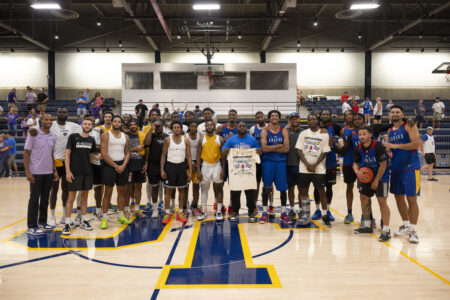How the scam happened and what KU is doing about it
Employees took tickets that otherwise would go to donors, then sold them to brokers.
Others conspired to destroy documents.
And still others felt intimidated to say anything.
Now Kansas Athletics Inc. says it’s serious about fixing the problems identified in an internal investigation, one that uncovered the improper use and sale of nearly 20,000 athletics tickets during the past five years and costing the department up to $3 million.
“It’s very important,” said Jim Marchiony, an associate athletics director, a day after KU released its report. “It’s important that we do this because the most important factor in all of this is faith in the system, and we are going to ensure — and do everything, everything — in our power to ensure that people can have faith in the system.”
The following is a listing of problems, as identified in the investigation, and the university’s plans to address each:
Problem: Ticket diversion
Although the report covers a wide range of tickets improperly diverted from Kansas Athletics Inc., involvement of two employees is particularly detailed.
Brandon Simmons, before he resigned as assistant athletics director for sales and marketing, told investigators that he’d regularly received more than the two complimentary season tickets he’d been entitled to, as a department employee, for KU men’s basketball. Another employee, Jason Jeffries, former assistant of ticket operations, said he ended up with 56 such tickets during each of the past few seasons.
The tickets in turn would be sold to one of Simmons’ childhood friends, a ticket broker in Oklahoma. Simmons and Jeffries would split the profits, which their boss — Charlette Blubaugh — had led them to believe was additional compensation in lieu of pay raises.
Together, the two men sold more than $200,000 in tickets through brokers, with Blubaugh’s knowledge and consent.
“Other individuals that I worked with were receiving the same or similar benefits,” Simmons said of the extra tickets, in a statement provided to investigators. “Then, as I was there longer, I found it to be pervasive and that Charlette and her supervisor Ben (Kirtland) were involved at significantly higher levels along with Rodney Jones.”
Blubaugh and her husband, Tom, were the only ones with access to the actual tickets, before distribution. Blubaugh could disguise the destination of tickets in the department’s computer system. And Jeffries marked off the seat locations on a dry erase board, making the seats unavailable to donors who had contributed money to the Williams Fund, potentially leaving donors with less desirable locations to watch games.
• Safeguard: Strengthen internal controls for handling and distribution of tickets, including clear segregation of duties within the ticket office; and establish a “dual key” system for access to the inventory of tickets, so that two different people would need to be present, with keys, to gain access. The department also would enhance transparency during Select-A-Seat events.
Problem: Missing records
The report details several problems in using the department’s own documents and computer systems to determine exactly which tickets went where, and to whom. Among the instances is a batch of missing records.
Investigators said that Blubaugh told Simmons and Jeffries that certain documents necessary for the annual “clean up” for the 2008-09 men’s basketball ticket sale “could not be reconciled,” and therefore should be moved to Memorial Stadium.
“She said that she, Kirtland and Tom Blubaugh would destroy them on a weekend and when the records could not be found, blame it on construction at the stadium,” the report said. “The records are missing.”
• Safeguard: Institute ticket reconciliation monthly, through a “Total Ticket Accountability Report” to be reviewed by the department’s chief financial officer.
Problem: Employee fears
Athletics Director Lew Perkins said he didn’t know about the ticket problems, or suspicions about them, until November or December. But other employees knew that Jones had garnered a reputation in the community as “the man to see if you wanted free tickets” to athletics events, and was seen as living a lifestyle that would be beyond his means based on earnings at Kansas Athletics. One employee says she was told never to say “no” if Jones or Kirtland sought extra tickets.
“A number of employees mentioned that because Blubaugh, Kirtland and Jones all seemed to be involved, there was nowhere they felt comfortable reporting their concerns, without fear of invoking the wrath of their superiors,” the report said. “Many employees expressed concern that inappropriate activity was going on but were fearful of retaliation and loss of employment if they said anything.”
• Safeguard: Establish a hot line for whistleblowers, one independent of Kansas Athletics and instead located within KU’s Office of Internal Audit.







